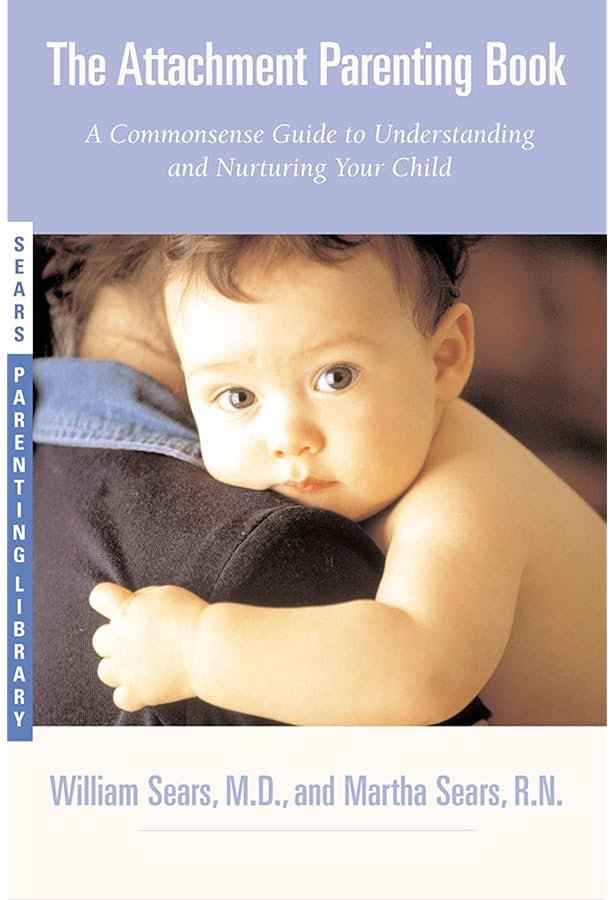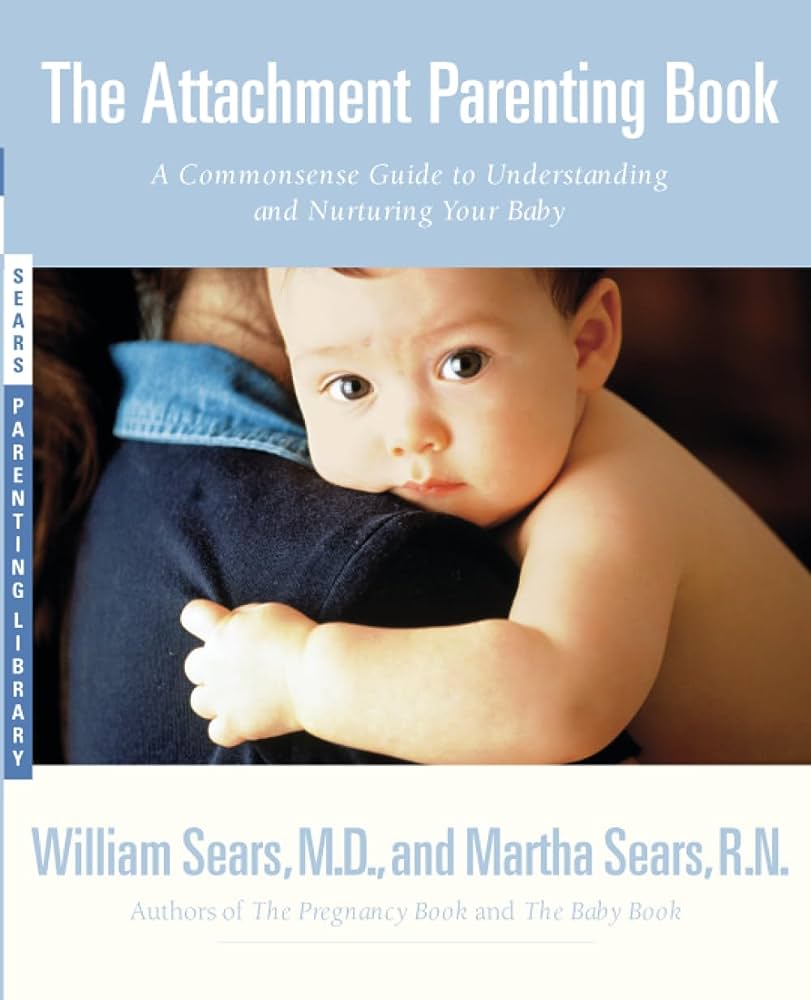Contents
- Understanding Your Newborn’S Development
- Essential Tools And Equipment For Newborn Care
- Building A Strong Bond With Your Newborn
- Establishing Healthy Sleep Habits
- Nurturing Your Newborn’S Nutritional Needs
- Ensuring Optimal Physical Growth And Development
- Soothing Techniques For Common Newborn Challenges
- Maintaining Your Own Well-Being As A New Parent
- Creating Memories And Celebrating Milestones
- Frequently Asked Questions On Newborn Resources
- Conclusion
Newborn resources provide essential information and support for parents of newborn babies. This includes guidance on feeding, baby care, sleep, and developmental milestones.
In addition, resources may offer tips for soothing a fussy baby, advice on creating a safe environment, and recommendations for trusted baby products. These resources aim to assist parents in navigating the challenges of newborn care and ensuring the well-being of their little ones.
With the right resources and knowledge, new parents can feel more confident and equipped to handle the joys and demands of caring for their newborn. This article explores some valuable resources available to support parents through the early days with their new bundle of joy.
Understanding Your Newborn’S Development
Discover valuable resources to help you understand your newborn’s development. Gain insights, tips, and guidance for your little one’s growth and milestones.
Welcoming a newborn into your family is an exciting and joyous experience. As your little one embarks on a journey of growth and development, it is important to understand the various milestones and stages they will go through. From cognitive and emotional development to their physical growth, every aspect plays a crucial role in shaping their future.
Additionally, the role of nutrition in promoting their growth cannot be emphasized enough. Let’s delve into the details of your newborn’s development under the following headings:
Milestones And Developmental Stages
- The first month: During this time, your newborn will begin to recognize your voice and distinguish light from dark. They will have a grasp reflex and try to lift their head for a few seconds when placed on their tummy.
- Two to three months: Your baby’s social smile will start to emerge, and they will enjoy playing with their hands and fingers. They may also start to display greater control of their head movements.
- Four to six months: At this stage, your little one will make greater eye contact and show interest in exploring objects around them. They may attempt to roll over and even sit with support.
- Seven to nine months: Your baby’s ability to understand simple instructions will improve, and they might start responding to their name. They may also start crawling and pulling themselves up while holding onto furniture.
- Ten to twelve months: During this period, your little one will begin to babble and understand basic words. They may also start taking their first steps or even walk while holding onto objects.
Cognitive, Emotional, And Physical Development
Cognitive Development:
- Rapid brain development: Your newborn’s brain will undergo significant growth and continue to develop throughout their infancy.
- Sensory exploration: They will learn to explore the world through their senses, including touch, taste, sight, sound, and smell.
- Object permanence: Around six to nine months, your baby will begin to understand that objects continue to exist even when they are out of sight.
Emotional Development:
- Bonding and attachment: Your newborn will form a strong emotional bond with primary caregivers, responding to their voices, touch, and scent.
- Social cues: They will start to recognize and respond to different emotions, such as smiling in response to a friendly face.
Physical Development:
- Motor skills: As your baby grows, they will develop their motor skills, progressing from simple reflex movements to rolling, sitting, crawling, and eventually walking.
- Gross and fine motor skills: Gross motor skills involve larger movements like crawling, while fine motor skills focus on smaller movements like picking up objects between thumb and finger.
The Role Of Nutrition In Promoting Growth
- Breastmilk: Breastfeeding offers numerous benefits, providing all the necessary nutrients and antibodies to support your baby’s growth and development.
- Formula feeding: If breastfeeding is not an option, infant formula is a suitable alternative, meeting your baby’s nutritional needs.
- Introduction of solids: Around six months, solid foods can be gradually introduced to complement breastmilk or formula, supporting the development of chewing and swallowing skills.
Remember, every newborn develops at their own pace. These guidelines are meant to give you a general overview of what to expect. Enjoy watching your little one thrive and grow as they navigate these precious early stages of life!
Essential Tools And Equipment For Newborn Care
Discover the must-have tools and equipment for newborn care in our comprehensive resource guide. From feeding essentials to nursery items, we’ve got you covered for your baby’s first months.
Creating A Safe And Comfortable Environment:
Bringing home a newborn baby is an exciting and transformative experience for new parents. As you settle into your new role, it’s important to create a safe and comfortable environment for your little one. Here are some essential tools and equipment that can help you ensure the well-being and happiness of your newborn:
- Crib: Invest in a sturdy and well-made crib that meets the necessary safety standards. Look for one with adjustable mattress heights to accommodate your baby’s growth. Remember to keep the crib free of pillows, blankets, and stuffed animals to reduce the risk of suffocation.
- Bassinet: Having a bassinet in your bedroom can make it easier to tend to your baby during nighttime feedings and diaper changes. Opt for a bassinet that is portable and has mesh sides for breathability.
- Baby Monitor: A reliable baby monitor allows you to keep an eye on your little one while they sleep in a different room. Choose one with video and audio capabilities to ensure you can monitor your baby’s well-being at all times.
- Glider or Rocking Chair: A comfortable chair for feeding and soothing your baby is a must-have. Consider a glider or rocking chair with padded armrests and a supportive backrest to ease the strain on your body during those long nights.
- Changing Table: Make diaper changes a breeze with a dedicated changing table. Look for one with safety rails and ample storage space for diapers, wipes, and other essentials. Alternatively, you can use a changing pad on top of a dresser or a designated changing station.
Must-Have Items For Diapering, Bathing, And Feeding:
Newborns require specific tools and equipment to ensure their diapering, bathing, and feeding needs are met. Here are some must-have items that will simplify these tasks and provide comfort for both you and your baby:
- Diapers: Stock up on diapers in various sizes, whether you choose disposable or cloth diapers. Don’t forget to include wipes, diaper rash cream, and diaper pail bags to complete your diapering essentials.
- Baby Bathtub: Bath time is a special bonding experience for parents and babies. Invest in a baby bathtub that is safe, easy to clean, and provides support for your newborn during bathing.
- Baby Shampoo and Wash: Choose gentle and hypoallergenic baby shampoo and wash products to keep your little one’s delicate skin clean and moisturized.
- Burp Cloths: For those inevitable spit-ups during feeding sessions, having enough burp cloths is crucial. These soft and absorbent cloths will protect your clothing and keep your baby comfortable.
- Nursing Pillow: Breastfeeding can be physically demanding, but a nursing pillow can provide much-needed support for your baby and your arms. Look for one that fits comfortably around your waist and offers proper positioning for optimal latch.
- Bottles and Nipples: If you’re bottle-feeding, make sure you have a supply of bottles with appropriate nipples for your newborn’s age. Consider options that are easy to clean and prevent colic.
Choosing The Right Baby Gear: Crib, Stroller, Car Seat:
Selecting the right baby gear is essential to ensure your newborn’s safety and comfort while on the go. Here are some key considerations when choosing a crib, stroller, and car seat:
- Crib: Look for a crib that meets safety standards, has adjustable mattress heights, and can convert into a toddler bed. Ensure it fits well in your nursery and complements your overall décor.
- Stroller: Consider your lifestyle and needs when choosing a stroller. Look for one that is easy to fold, maneuverable, and equipped with safety features. Adjustable seating positions and ample storage space are also beneficial.
- Car Seat: Safety is paramount when it comes to car seats. Choose one that meets safety regulations and provides proper support for your newborn. Consider an infant car seat that can be easily clicked in and out of a base or stroller.
Remember, providing a safe and comfortable environment for your newborn is crucial for their development and well-being. With the right tools and equipment, you can navigate the early stages of parenthood with confidence and peace of mind.
Building A Strong Bond With Your Newborn
Building a strong bond with your newborn is crucial for their development and happiness. Discover essential resources and tips to establish a deep connection with your baby.
Welcoming a newborn into your life is an incredible experience filled with love, joy, and the desire to build a deep and lasting connection. Building a strong bond with your newborn is not only important for their emotional well-being but also for their overall development.
In this section, we will explore two essential aspects of bonding with your little one: the power of touch through skin-to-skin contact and baby massage, as well as effective communication and stimulating interaction. We will also delve into promoting attachment and emotional well-being, providing you with practical tips to enhance the bond with your newborn.
The Power Of Touch: Skin-To-Skin Contact And Baby Massage
- Skin-to-skin contact:
- Holding your baby close to your bare chest promotes a sense of security and warmth. This intimate contact encourages the release of oxytocin, known as the “love hormone,” in both you and your newborn, fostering a deep connection.
- Skin-to-skin contact also helps regulate the baby’s temperature, heart rate, and breathing, and may even aid breastfeeding initiation.
- Baby massage:
- Gently massaging your newborn can work wonders in strengthening your bond. Start by using gentle strokes and massaging infant-friendly oils or lotions.
- Massage can soothe your baby, enhance relaxation, and aid digestion. It also offers a precious opportunity for you to communicate through touch, enhancing trust and emotional connection.
Tips For Effective Communication And Stimulating Interaction
- Eye contact:
- Establishing eye contact with your newborn creates a powerful connection and helps your baby recognize your face. Look into their eyes during feeding, changing, and playtime to enhance bonding.
- Sing and talk to your baby:
- Narrating your daily activities or singing lullabies not only stimulates your baby’s senses but also exposes them to the rhythm and melody of language, promoting language development.
- Responding to cues:
- Pay close attention to your baby’s cues and respond promptly. This communication shows them that their needs are heard and met, fostering a sense of security and trust in your relationship.
- Engage in interactive play:
- Respond to your baby’s coos, smiles, and gestures. Engage in gentle tickling, peek-a-boo, or hand games to stimulate their sensory development and encourage social interaction.
Promoting Attachment And Emotional Well-Being
- Create a nurturing environment:
- Ensure your baby feels safe and secure by maintaining a consistent routine, providing a comfortable sleeping environment, and offering plenty of gentle physical and emotional affection.
- Practice positive affirmations:
- Share loving and encouraging words with your little one. This positive reinforcement promotes a strong sense of self-worth and emotional well-being, setting the foundation for healthy relationships in the future.
Remember, building a strong bond with your newborn is a journey that requires patience, love, and understanding. By incorporating touch, communication, interaction, and nurturing practices into your daily routine, you are providing your baby with a solid foundation for emotional connection and overall well-being.
Enjoy the precious moments spent with your newborn and cherish the beautiful bond you create together.
Establishing Healthy Sleep Habits
Establish healthy sleep habits in newborns by following expert advice and utilizing helpful resources. Develop a routine, create a calming environment, and implement soothing techniques to promote restful sleep for your baby.
Newborn babies are known for their unpredictable sleeping patterns, which can often leave new parents feeling exhausted and overwhelmed. However, by understanding newborn sleep patterns, creating a calm and consistent bedtime routine, and adhering to safe sleep guidelines, you can help your little one develop healthy sleep habits.
In this section, we will explore these key aspects in detail to assist you in promoting a restful and uninterrupted night’s sleep for your newborn.
Understanding Newborn Sleep Patterns:
Newborn sleep patterns can be quite different from those of older children and adults. Here are some key points to help you understand your baby’s sleep patterns:
- Newborns sleep for approximately 14 to 17 hours a day, spread out over multiple short intervals.
- They have no set sleep-wake schedule and may sleep for a few minutes to a few hours at a time.
- Newborns often experience frequent wake-ups during the night for feeding and diaper changes.
- They spend a significant amount of time in REM sleep, which aids in their brain development and learning.
Creating A Calm And Consistent Bedtime Routine:
Establishing a regular bedtime routine can be beneficial in preparing your newborn for sleep. Here are some tips to help you create a calm and consistent routine:
- Start winding down about 30 minutes before bedtime by dimming the lights and engaging in soothing activities.
- Establish a consistent sequence of activities, such as a warm bath, gentle massage, or bedtime story.
- Avoid stimulating activities, screen time, or loud noises in the evening to promote a relaxed atmosphere.
- Use techniques like swaddling, white noise, or a pacifier if they help to soothe your baby.
Safe Sleep Guidelines And Sids Prevention:
Ensuring a safe sleep environment is crucial to reduce the risk of Sudden Infant Death Syndrome (SIDS). Take note of the following guidelines:
- Always place your baby on their back to sleep, both for naps and nighttime sleep.
- Use a firm and flat mattress in a crib or bassinet, without any loose bedding, pillows, or stuffed toys.
- Keep the sleeping area smoke-free and at a comfortable temperature (around 68-72°F or 20-22°C).
- Consider room-sharing with your baby for at least the first six months, but avoid bed-sharing to prevent suffocation hazards.
By understanding your newborn’s sleep patterns, establishing a consistent bedtime routine, and ensuring a safe sleep environment, you can promote healthy sleep habits for your little one. Remember that every baby is unique, so it may take time to find what works best for your child.
Be patient and flexible, and don’t hesitate to seek advice from healthcare professionals if you have any concerns. Happy sleeping!
Nurturing Your Newborn’S Nutritional Needs
Discover essential resources for nurturing your newborn’s nutritional needs. Ensure your baby’s healthy growth with expert guidance on feeding and nutrition for newborns.
Newborn Resources:
Welcoming a newborn into the world is an exciting and joyous time. As a parent, you want to ensure that your little one receives the best nutrition to support their growth and development. In this section, we will explore essential information on breastfeeding, bottle-feeding, and introducing solids to meet your newborn’s nutritional needs.
Breastfeeding Basics: Benefits, Techniques, And Problem-Solving
Breastfeeding provides numerous benefits for both the baby and the mother. Here are the key points to keep in mind:
- Bonding: Breastfeeding creates a strong emotional bond between the mother and baby.
- Complete nutrition: Breast milk is a perfect blend of all the essential nutrients needed for a newborn’s growth.
- Immune system boost: Breast milk contains antibodies that help protect the baby against various infections and diseases.
To ensure successful breastfeeding, it’s crucial to master the appropriate techniques. Consider the following tips:
- Proper latching: Position your newborn correctly to ensure a proper latch onto the breast.
- Comfortable positioning: Find a comfortable position that works for you and your baby.
- Frequent feeding: Newborns have small stomachs and require frequent feeding sessions.
Despite the many advantages, breastfeeding may come with challenges. Here are some common issues and solutions:
- Sore nipples: Apply lanolin cream or nurse on the less sore side first.
- Low milk supply: Nurse frequently, ensure proper latch, and consider seeking support from a lactation consultant.
Bottle-Feeding Tips And Choosing The Right Formula
For various reasons, not all parents choose to breastfeed. Bottle-feeding can be a viable alternative, and here are some important considerations:
- Choosing a formula: Consult with your pediatrician to select a formula that best suits your baby’s needs.
- Sterilization: Ensure proper sterilization of bottles, nipples, and other feeding equipment.
- Feeding cues: Pay attention to your baby’s hunger cues and feed them when they show signs of hunger.
When bottle-feeding, keep the following tips in mind:
- Hold your baby in an inclined position to prevent choking or excessive air intake.
- Burp your baby frequently during feeding to alleviate discomfort caused by trapped air.
- Connect with your baby by maintaining eye contact and gently talking to them during feedings.
Introducing Solids: When And How To Start
Introducing solids marks an important milestone in your baby’s development. Here’s what you need to know:
- Signs of readiness: Look for signs such as sitting without support, showing interest in food, and doubling birth weight.
- Recommended age: Generally, babies are ready for solids around six months old, but consult your pediatrician for individual guidance.
When introducing solids, remember these essential steps:
- Start with single-ingredient purees, such as mashed avocado or sweet potato.
- Gradually introduce new foods, allowing your baby to adjust to different tastes and textures.
- Be patient and responsive to your baby’s preferences and cues; let them guide the pace.
Remember, each child is unique, and their nutritional needs may vary. By understanding the basics of breastfeeding, bottle-feeding, and introducing solids, you can make informed decisions to support your newborn’s healthy growth and development.
Ensuring Optimal Physical Growth And Development
Promote optimal physical growth and development in newborns with our comprehensive resources. Our expert guidance and support will ensure your baby’s health and well-being from the very beginning.
Tummy Time: Benefits And Techniques
Tummy time is an essential activity that promotes optimal physical growth and development in newborns. By placing your baby on their tummy while they are awake and supervised, you can help strengthen their muscles, improve their coordination, and encourage their sensory and motor development.
Here are some benefits and techniques for incorporating tummy time into your baby’s routine:
- Strengthens neck and shoulder muscles: Tummy time helps your baby strengthen the muscles in their neck and shoulders, which are important for maintaining head control and eventually sitting up.
- Promotes motor skills development: By pushing up on their arms and rolling over during tummy time, babies develop their motor skills, enhancing their ability to crawl, sit, and eventually walk.
- Prevents flat spots on the head: Regular tummy time reduces the risk of developing flat spots on the back of the head, as well as conditions like torticollis, which can lead to limited neck mobility.
- Enhances visual development: Being on their tummy allows babies to see their surroundings from a different perspective, stimulating their visual development.
- Reduces the risk of positional plagiocephaly: Tummy time helps prevent positional plagiocephaly, a condition characterized by an uneven or flattened head shape.
To make the most of tummy time, keep the following techniques in mind:
- Start with short sessions: Begin with short tummy time sessions, gradually increasing the duration as your baby gets more comfortable.
- Use a firm, clean surface: Choose a firm, clean surface such as a play mat or a blanket on the floor for tummy time. Avoid soft surfaces like beds or sofas.
- Engage your baby: Get down on their level, make eye contact, and talk or sing to your baby during tummy time to keep them engaged and motivated.
- Provide support if needed: If your baby struggles to push up on their arms, you can use a small rolled-up towel or a breastfeeding pillow to provide support under their chest and help them lift their head.
- Make it fun: Place colorful toys, mirrors, or interesting objects within your baby’s reach to stimulate their senses and make tummy time enjoyable.
Simple Exercises To Promote Motor Skills
In addition to tummy time, there are simple exercises you can incorporate into your baby’s routine to further promote their motor skills development. These exercises can be done during supervised playtime and are beneficial for their overall physical growth. Here are some exercises you can try:
- Leg cycling: Gently move your baby’s legs in a cycling motion as if they are riding a bicycle. This exercise helps strengthen their leg muscles and prepares them for crawling and walking.
- Reaching and grabbing: Encourage your baby to reach for and grasp objects. Place toys just out of their reach to motivate them to stretch and develop their hand-eye coordination.
- Rolling practice: Help your baby practice rolling over by gently guiding them from one side to the other. This exercise promotes balance and core strength.
- Sitting support: Sit your baby up with support, either by using your hands or with the help of a baby seat. This exercise helps them develop their back and neck muscles, preparing them for independent sitting.
- Tummy to back and back to tummy: Assist your baby in rolling from tummy to back and back to tummy. This exercise strengthens their core and improves their ability to change positions.
Remember to always provide a safe and supervised environment for these exercises, ensuring your baby’s comfort and enjoyment throughout the process.
Ensuring Proper Vaccination And Healthcare Visits
Along with tummy time and exercises, ensuring proper vaccination and regular healthcare visits are crucial for your baby’s optimal physical growth and development. Vaccinations protect your baby from serious diseases, while healthcare visits allow healthcare professionals to monitor their growth and provide necessary guidance.
Here’s why it is important to prioritize vaccinations and healthcare visits:
- Disease prevention: Vaccines protect your baby from vaccine-preventable diseases such as measles, polio, and whooping cough, which can have severe consequences for their health.
- Building immunity: Vaccinations help build your baby’s immune system, equipping them with the necessary defenses to fight off infections and diseases.
- Monitoring growth and development: Regular healthcare visits provide an opportunity for healthcare professionals to assess your baby’s growth, address any concerns, and provide guidance on feeding, sleep, and overall development.
- Early intervention: Healthcare visits allow early detection of any developmental or health issues. Timely intervention can prevent complications and ensure appropriate support and treatment if needed.
In order to ensure proper vaccination and healthcare visits for your baby, it is advisable to consult with your pediatrician, who can provide you with a recommended vaccination schedule and guide you on when to schedule healthcare visits. Remember to keep track of your baby’s vaccination records and maintain open communication with your healthcare provider.
By prioritizing vaccinations and healthcare visits, you are taking proactive steps towards your baby’s overall well-being and long-term health.
Soothing Techniques For Common Newborn Challenges
Discover effective techniques to soothe common challenges faced by newborns. This invaluable resource provides practical solutions to help calm your baby and create a peaceful environment for both of you.
Welcoming a new baby is an exciting and joyous time in any parent’s life. However, it can also bring challenges, especially when it comes to soothing your little one. From dealing with fussiness to managing discomforts such as gas, colic, and teething, every parent needs some helpful techniques up their sleeve.
In this section, we will explore some tried-and-true methods to calm a fussy baby and address common newborn challenges, ensuring a more peaceful experience for both you and your little one.
Techniques For Calming A Fussy Baby:
When your baby is fussy and inconsolable, it can be understandably distressing for both of you. However, there are several techniques you can try to help soothe your little one and create a more serene environment:
- Gentle rocking or swaying: Often mimicking the soothing motion of the womb can help calm your baby. Try rocking or swaying them gently in your arms or in a rocking chair.
- Comforting touch: Tenderly massaging your baby’s back, legs, or tummy can provide comfort and relaxation. Use gentle, circular motions and observe your baby’s response.
- White noise: Creating a soothing environment with white noise, such as a fan or a specially designed sound machine, can help drown out other distractions and provide a sense of comfort to your baby.
Soothing Techniques For Common Discomforts: Gas, Colic, And Teething:
Babies often experience discomforts like gas, colic, and teething, which can result in fussiness and irritability. Here are some techniques to alleviate these common challenges:
- Gas relief: Help your baby release trapped gas by gently cycling their legs in a bicycle motion. Applying a warm compress to their tummy or using over-the-counter gas relief drops as per your pediatrician’s recommendation can also aid in relieving gas.
- Colic calming: For colicky babies, try using a pacifier or offering them a comforting bottle of warm water. Some parents find that swaddling their baby snugly or giving them a gentle massage can also help calm their colic symptoms.
- Soothing teething pain: Offer your baby teething toys or a clean, chilled washcloth to soothe their teething discomfort. Gentle rubbing of their gums with a clean finger can also provide relief. Consult with your pediatrician about using infant-approved pain relief gels or medications.
Practical Tips For Managing Crying And Sleep Regression:
Crying and sleep regression are common challenges parents face during their baby’s early months. Here are some practical tips to help you manage these periods:
- Consistent routines: Establishing consistent daily routines for feeding, playing, and sleeping can provide a sense of security for your baby, reducing fussiness and promoting better sleep.
- Calming rituals: Incorporate calming rituals into your baby’s bedtime routine, such as warm baths, gentle lullabies, or soft cuddles. These actions can help signal to your baby that it’s time to wind down and prepare for sleep.
- Respond with patience and love: During periods of crying or sleep regression, respond to your baby with patience and affection. Offering gentle reassurance and a soothing touch can help them feel secure and comforted.
Remember, each baby is unique, and what works for one may not work for another. Be patient and adapt these soothing techniques to suit your baby’s preferences. With consistency and love, you can navigate through these common newborn challenges and provide the comfort and care your little one needs.
Maintaining Your Own Well-Being As A New Parent
Maintaining your well-being as a new parent is essential, and having access to newborn resources can greatly help. From helpful apps to support groups, these resources can provide guidance and reassurance during this exciting yet challenging time.
Being a new parent is an exciting but challenging journey. Amidst the joy and wonder of caring for your newborn, it is essential to prioritize your own well-being. Taking care of yourself physically and mentally, seeking support from loved ones, and understanding how to cope with postpartum depression and anxiety are crucial aspects of maintaining your overall health.
In this section, we will explore various self-care practices, the importance of building a strong support network, and strategies for managing postpartum depression and anxiety.
Self-Care Practices For Physical And Mental Health
- Prioritize sleep: Ensure you get enough rest by establishing a consistent sleep routine. Take naps whenever possible and consider sharing nighttime parenting duties with your partner.
- Stay hydrated: Drink plenty of water throughout the day to avoid dehydration and promote optimal bodily functions.
- Eat well-balanced meals: Nourish your body with nutritious foods to maintain energy levels and support your overall well-being.
- Engage in regular physical activity: Incorporate gentle exercises, such as walking or yoga, into your daily routine to enhance both your physical and mental health.
- Take breaks: Allow yourself moments of solitude or leisure activities to recharge and reduce stress.
- Practice mindfulness: Engage in meditation, deep breathing exercises, or other mindfulness techniques to promote relaxation and reduce anxiety.
- Express your emotions: Share your feelings with a trusted friend, partner, or therapist to foster emotional well-being.
Seeking Support: Building A Strong Support Network
- Reach out to friends and family: Lean on your loved ones for emotional support, practical assistance, and a listening ear.
- Join parenting groups: Connect with other new parents who can provide empathy, advice, and a sense of camaraderie.
- Attend support groups or counseling: Seek professional help if needed, whether through online resources, local support groups, or therapy sessions.
Coping With Postpartum Depression And Anxiety
- Acknowledge your emotions: Understand that feelings of sadness, anxiety, or irritability can be normal during the postpartum period.
- Communicate openly: Share your experience with your healthcare provider, partner, or support network to seek appropriate assistance.
- Seek professional help: Consult with a mental health professional who specializes in postpartum mental health and can provide guidance and treatment options.
- Take care of your physical health: Prioritize self-care practices mentioned above to support your mental and emotional well-being.
- Create a support plan: Establish strategies for coping with depressive or anxious episodes that involve reaching out to loved ones or professionals for support.
- Educate yourself: Learn more about postpartum depression and anxiety through reputable sources to better understand your experience and available resources.
Remember, maintaining your well-being as a new parent is crucial for both your own happiness and your ability to care for your little one. By implementing self-care practices, building a strong support network, and recognizing and addressing postpartum depression and anxiety, you can find balance and joy in your parenting journey.
Creating Memories And Celebrating Milestones
Celebrate the arrival of your newborn with our comprehensive resources for creating lasting memories and marking important milestones. From capturing those precious first moments to organizing memorable events, we provide the essential tools you need to cherish every step of your baby’s journey.
Capturing And Preserving Precious Moments: Photography And Keepsakes
As parents, we always want to capture and preserve those precious moments with our newborns. From their first smile to their first steps and beyond, these memories are incredibly special and deserve to be treasured for a lifetime. Fortunately, there are various ways in which you can capture and preserve these precious moments, allowing you to relive them and share them with your child as they grow older.
Here are some tips and suggestions to help you create lasting memories through photography and keepsakes:
- Professional Newborn Photoshoots: Consider scheduling a professional newborn photoshoot, where an experienced photographer can skillfully capture the delicate features, tiny hands, and sleepy moments of your precious bundle of joy. These professional photographs will freeze those first few weeks of your baby’s life in time, creating beautiful keepsakes that you can cherish forever.
- DIY Photoshoots at Home: If you prefer a more personal touch, you can also create your own mini photoshoots at home. Use natural light, play around with different poses and props, and let your creativity flow. You don’t need professional equipment – a smartphone with a decent camera is more than sufficient to capture those beautiful moments and genuine expressions of your baby.
- Creating a Photo Diary: Consider creating a photo diary or album that showcases the milestones and special moments in your baby’s first year. This can be a wonderful keepsake that your child can look back on and marvel at their growth and development. Add captions and stories to accompany the photos, recounting special memories and milestones.
- Hand and Footprint Keepsakes: Another fantastic way to create lasting memories is by making hand and footprint keepsakes. Using non-toxic, baby-safe ink or clay, gently imprint your baby’s hand and foot onto paper or other lasting materials. Not only will you have a tangible reminder of just how tiny your little one once was, but you can also use these prints to create personalized artwork, ornaments, or even jewelry.
Celebrating Milestones: First Smile, First Steps, First Words
Every milestone in your baby’s life is worth celebrating. From their first smile to their first steps and first words, these achievements mark their growth and development. Each milestone is unique and special, representing key moments in your baby’s journey through infancy.
By celebrating and acknowledging these milestones, you not only create cherished memories, but you also encourage and support your baby’s development.
Here are a few ideas to celebrate and commemorate your baby’s milestones:
- First Smile: Capture the first time your baby gives you that heartwarming smile by taking a photo or video. Share this special moment with your loved ones, and consider creating a dedicated ‘First Smile’ photo album or frame to display this precious milestone.
- First Steps: When your baby takes their first steps, it is a thrilling and momentous occasion. Encourage and support your little one during this milestone by setting up a safe and inviting space for them to explore. Remember to capture this milestone on camera, and consider framing a photo or keeping a special pair of ‘first steps’ shoes as a keepsake.
- First Words: Language development is an exciting milestone for babies. Encourage your baby’s communication skills by engaging in conversation, reading, and singing. When your baby says their first word, make sure to celebrate it with excitement and praise. Capture the moment on video or write it down in their baby journal.
Remember, milestones are not limited to these three examples. Celebrate every achievement, whether it’s their first giggle, first solid food, or first tooth. Each milestone holds significance and deserves recognition. Embrace these beautiful moments, capture them through photography or keepsakes, and create a lifetime of cherished memories for you and your baby.

Credit: www.amazon.com
Frequently Asked Questions On Newborn Resources
What Benefits Can I Get With A Newborn Baby?
Having a newborn baby brings joy, love, and an opportunity to create beautiful memories that last a lifetime.
How To Get Free Baby Stuff For New Moms?
To get free baby stuff for new moms, search for online platforms offering samples and sign up.
What Are The 4 Basic Needs Of A Newborn Baby?
The 4 basic needs of a newborn baby are food, sleep, warmth, and love and attention.
What Do I Really Need For Newborn?
For a newborn, you will need essentials: diapers, clothes, blankets, bottles, formula, a crib, and a car seat.
Conclusion
To sum up, the arrival of a newborn can be both exciting and overwhelming for new parents. Thankfully, there are various resources available to help navigate this new chapter of life. From books and online communities to pediatricians and local support groups, parents can find guidance and support every step of the way.
It is important for new parents to prioritize their own self-care in order to better care for their baby. Establishing a routine, seeking help when needed, and being open to learning from others can all contribute to a smoother transition into parenthood.
Remember, no one is perfect, and it’s okay to ask for help. With the abundance of resources available, parents can feel confident in their ability to provide the best care for their precious little one. So, embrace this exciting journey and enjoy the precious moments with your newborn.










